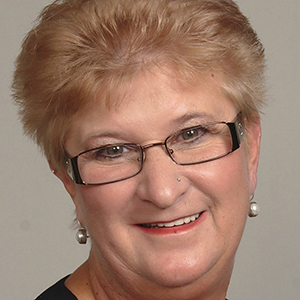In this Article

Medical billers and coders start their work after a patient has received services or treatment. They ensure medical records are accurate and that service providers are properly reimbursed. The path to becoming a medical biller and coder can be much quicker than the route to a career as a licensed nurse, doctor, or other healthcare provider. In as little as a year, you could start or switch to a career in medical billing and coding.
Several education options are open to people pursuing this field. Some medical billers and coders hold a two-year associate degree or a bachelor’s degree, but this is not always necessary. A variety of schools offer medical and billing coding paths, including diploma, certificate, and degree programs.
The bottom line:
Most educational options for becoming a medical biller and coder offer a relatively fast and flexible way to begin a career in the medical field.
Certificate and Diploma Programs
Certificate and diploma programs generally take nine months to one year to complete. These programs are offered by career colleges, community colleges, professional organizations, and standalone programs. Career college programs usually have a faster time to completion.
Prerequisites: High school diploma or GED, minimum scores on standardized tests such as ACT or SAT
Courses/curriculum: Anatomy and physiology, medical terminology, patient privacy, disease classification, and coding
Considerations: Pay attention to which coding system(s) the program teaches. Some are geared toward hospital coding or physician’s office coding systems.
Time to complete: Nine to 12 months
Associate Degree Programs
An associate degree takes longer than a medical billing and coding certificate or diploma. The education goes beyond must-know information for billing and coding careers. Both career colleges and community colleges offer associate degree programs.
Prerequisites: High school diploma or GED, minimum GPA (often 2.0 or above). Some programs require prerequisite coursework such as anatomy and physiology.
Courses/curriculum: Medical terminology, pharmacology, diagnostic coding, procedural coding, and ethics
Considerations: If you plan to pursue more education, such as a bachelor’s or master’s degree, you may be able to transfer credits from your associate degree.
Time to complete: Two years
Bachelor’s Degree Programs
If you want to earn a bachelor’s degree before becoming a medical biller and coder, you will probably major in health information management or health care administration. In addition to classes in your major, you will need to complete general education requirements.
Depending on whether you earn a Bachelor of Science or Bachelor of Arts, you’ll fulfill coursework in general sciences or liberal arts. A bachelor’s degree can apply to a wider variety of career options within the healthcare field.
Prerequisites: High school diploma or GED and minimum scores on standardized examinations such as ACT or SAT. The application process may also include essay questions, recommendations, and interviews with admissions staff.
Courses/curriculum: Health information management, healthcare delivery systems, medical terminology, healthcare reimbursement, personnel management, anatomy, and physiology
Considerations: If you intend to pursue management positions down the line, a bachelor’s degree will help. Many bachelor’s degrees in this field require in-field work experience such as internships.
Time to complete: Four years
Watch Out for Medical Billing and Coding Training Scams
You might have seen flyers, ads, or pop-ups about work-from-home medical billing and coding jobs. The promise of a lucrative career may seem too good to be true—and it likely is. Many of these attempts to get sign-ups are actually scams.
The Federal Trade Commission has filed charges against many companies for making false claims about how much business someone working from home can expect and how much they can earn.
“Many people have the misconception that you can just punch codes into a computer and do the job, just like that,” says Nancy Szwydek, MPH, RN, RHIA, CRAT, CMAC, the assistant dean for accreditation at Purdue University Global. The truth is medical billers and coders need specialized training and knowledge provided by certificate, diploma, or degree programs.
Online Courses
Online options for diploma, certificate, associate degree, and bachelor’s degree programs are becoming more common. This is great news for anyone who struggles to fit traditional, in-person programs into their lives.
Online and in-person programs cover the same ground. Both will teach you the medical basics you need—medical terminology, for instance—as well as train you in a coding system or systems.
Where they differ: Online programs are often more flexible, which makes them popular among students who are working simultaneously, providing caregiver support, or managing other responsibilities. As you look into your education options, you’ll want to consider whether online medical billing and coding programs are a good fit for you.
How to Decide Which Educational Track Is Right for You
With so many potential paths to follow, how do you choose a medical billing and coding program?
These considerations will help you pick the medical billing and coding education that best fits your needs and goals.
- Is it flexible:
- Some programs are more flexible than others. If you need to balance family life, work, or other responsibilities with coursework, investigate whether you can enroll in a program part time or take prerecorded classes on your own schedule.
- What kind of medical setting do you prefer:
- “Be aware that there are multiple coding systems, and some are more commonly used in hospitals or physician office settings,” explains Robyn Korn, MBA, RHIA, CPHQ, adjunct instructor of medical coding at Purdue University Global. If you know which route you want to take, make sure a program teaches that coding system.
- Where do you want to work:
- Jobs in urban areas usually pay more than those in rural settings—and are more competitive. Investing in more education can give you a leg up in applying for in-demand jobs.
Certification
After you earn a degree or finish a medical billing and coding program, you have the optional choice of earning a certification. Certifications can be general or specific, depending on what competencies you want to demonstrate. For example, you can earn certification in foundational coding, or you can drill down to a narrow topic such as anesthesia or obstetrics and gynecology. This shows employers that you’ve not only studied a niche topic but have demonstrated your expertise.
Salary
Like in most fields, pay for medical billers and coders varies, depending on your experience, level of education, certifications, location, and medical setting where you work.
That said, medical billers and coders are professionals who are compensated accordingly. As you consider what kind of education to pursue, factor in your salary expectations and look into strategies to increase your pay.

Written and reported by:
Catherine Ryan Gregory
Contributing Writer

With professional insight from:
Robyn Korn, MBA, RHIA, CPHQ
Adjunct Instructor of Medical Coding, Purdue University Global

With professional insight from:
Nancy Szwydek, MPH, RN, RHIA, CRAT, CMAC
Assistant Dean for Accreditation, Purdue University Global